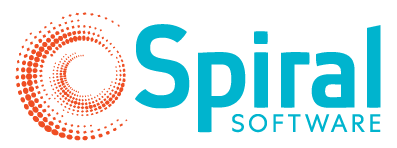
REVOLUTIONISING RESEARCH AND CARE: TTM2’s NOVEL APPROACH FOR RESUSCITATED CARDIAC ARREST PATIENTS

THE TTM2 TRIAL
The TTM2 trial is a phase III, multi-centre, randomized, parallel-group, clinical trial in resuscitated cardiac arrest patients admitted to the intensive care unit to investigate whether targeted temperature management (TTM) to 33°C improves survival and neurological outcome at 6 months compared to a strategy of targeting normothermia and avoiding fever above 37.7°C.
REPORT
Primary Outcome: In patients with coma after out-of-hospital cardiac arrest, targeted hypothermia did not lead to a lower incidence of death by 6 months than targeted normothermia.
CASE STUDY
“We need to finish this story by comparing temp management vs. no temp management”
NIKLAS NIELSEN, PRINCIPAL INVESTIGATOR

BACKGROUND
For patients admitted to the ICU after a cardiac arrest, neurological injury leading to the withdrawal of life support or neurological impairment are the most common outcomes following cardiac arrest.
An out-of-hospital cardiac arrest has an estimated incidence of approximately 1 per 1,000 persons per year (approximately 25,000 individuals in Australia each year).
In studies using detailed instruments, cognitive impairment is reported to be present in 50% of survivors of cardiac arrest discharged from the hospital; this is associated with lower quality of life and increased caregiver strain.
For each resuscitated cardiac arrest patient admitted to ICU who survives to hospital discharge, admission costs alone exceed $120,000. Moreover, the estimated ongoing community-based costs for each patient with moderate cerebral injury is AUD$34,000/year.
Many interventions have been tested in order to lower mortality and improve neurologic function in patients resuscitated after out-of-hospital cardiac arrest. Despite promising results in experimental models, all but one have failed in clinical trials. To date, induced hypothermia is the only intervention that has shown promising results in preliminary clinical trials.
Australian mortality rates for heart attack range between 87-94%.
TRIAL DESIGN
An international, multi-centre, parallel-group, phase III, non-commercial, randomised, controlled trial (RCT) enrolling 1900 patients.
Co-enrolment with the TAME trial (Targeted Therapeutic Mild Hypercapnia).
Web-based allocation using permuted blocks of varying sizes (stratified by site + TAME randomisation) in 1:1 ratio.
Participants with out-of-hospital cardiac arrest will be randomised to targeted temperature management with hypothermia at 33°C, or normothermia and early treatment of fever equal to or greater than 37.8°C.
Outcomes assessed at 30 days, 6 months, 24 months.
KEY CONNECTIONS
Principle Investigator, Niklas Nielsen. Specialist in Anaesthesiology and Intensive Care, Helsingborg Hospital. Professor, Department of Clinical Sciences, Lund University.
Coordinating Investigator, Josef Dankiewicz. Resident Physician - Cardiology, Skåne University Hospital, Lund University.
Clinical Trial Manager, Helena Levin, Clinical Trial Manager. Centre for Cardiac Arrest, Skåne University Hospital, Lund University.
EDC Platform Project Manager, Jess Wren, Project Manager, Spiral
Sponsor: Region Skåne – Skånevård SUND – Helsingborgs Hospital, S Vallgatan 5, 251 87 Helsingborg, Sweden
Coordinating centre: Lund University, Sweden
Twitter: Follow news and updates from the TAME trial page on Twitter – https://twitter.com/TTM2trial
Software Platform: Spinnaker, Spiral Software
-

Our Spiral Project Lead and EDC Platform manager for the TTM2 trial is Jess Wren.
In charge of overseeing software development that’s used in clinical trials, Jess not only engages clients but, like glue, she also pulls the team together along the path of delivery.
-

“You hear of working in an agile environment but this really is as agile as it gets.”

